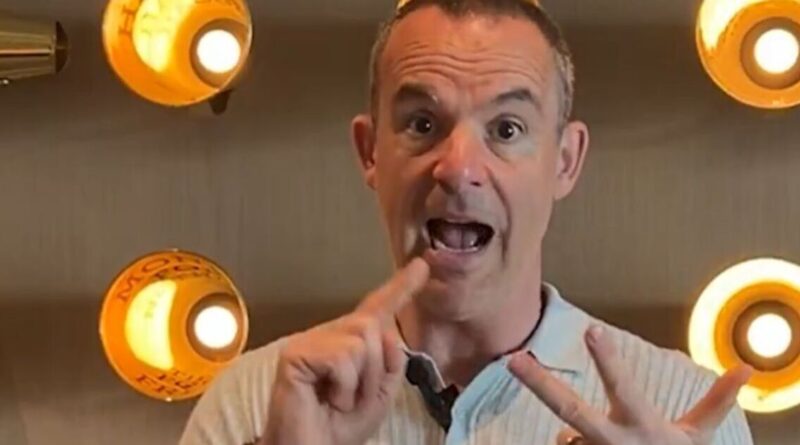Martin Lewis shares energy move to make today to lock in a year of savings | Personal Finance | Finance
Martin Lewis is urging households to act on fixing their energy tariff, highlighting that the best deals available today could guarantee lower bills for the next year – well ahead of changes to the energy price cap in July.
In a special mini-podcast episode on Friday, the Money Saving Expert told listeners on BBC Sounds: “If you can get a cheap fix now that’s 18% cheaper than the current price cap, then you will be saving from the next few days. You will already have your price drop, and that drop will stay for the next year, guaranteed.” He added that early exit penalties – a concern for those nervous about fixing too soon – are “not that big anymore,” and in the unlikely event energy prices plummet, consumers could “just pay the early exit penalties and get out and go to a cheaper fix.”
At the time the podcast aired, the average price of a new fixed deal was already lower than both the current and upcoming energy price caps. Mr Lewis said: “The cheapest fix on the market that you can lock in today is 18% less than the current price cap. So it’s far, far lower than the July price cap, and lower than where the price cap is predicted to go.”
The energy price cap is set to fall by 7% from July. However, Mr Lewis urged consumers not to overestimate the impact.
He said: “While a drop is welcome, this is nothing to shout home about. We saw the price cap go up 10% in October, 1% in January, and 6% in April. So all this cut is doing is effectively reversing the April price hike and putting it back to where we were at the beginning of the year.”
Despite the July drop, Mr Lewis noted that “we are still – this July, August and September – going to be paying 10% more than we did in July, August and September 2024.”
Looking ahead, the Money Saving Expert said forecasts suggest only modest movement. A potential 0% to 4% drop in October, followed by possible rises of 1% in January and up to 3% in April. However, Mr Lewis pointed out that these are only predictions. He said: “The further out you go, the more crystal ball gazing it is. And of course, with the big orange fella sitting in the White House, the world economy is really changeable.”
That uncertainty is exactly why Mr Lewis is championing fixed deals now. He said: “I can’t promise it will win, but on the very strong balance of probabilities based on the predictions right now, fixing would save you substantially.”
He added: “In fact, that is why I say the price cap is a pants cap, you shouldn’t be on it, you should be on the cheap fix.”
Originally created as a backstop tariff, the price cap became the default during the energy crisis when few competitive tariffs were available. Now, with better deals on the market, people could save by switching. Mr Lewis said: “Unless you’re on pre-payment where you can’t get off it, you should get off it by going onto a site like Cheap Energy Club and finding what your cheapest fix is. It depends on your region and what you use – and lock it in.”
Currently, 65% of households are still on the price cap, with only 35% benefiting from cheaper tariffs. Mr Lewis warned that this inertia could cost people over the next year.
He suggested using a whole-of-market comparison site to explore options, but caveated: “If you do a comparison right now, the saving will be based on the current April, May and June price cap rate. It’s not based on the July rate. So the saving that you see will be overinflated, as we know the prices are coming down in July.”
Still, for many, the maths is likely to work in their favour. Mr Lewis said: “Some recent research that I’ve done shows that at every point over the last 12 months, the cheapest fix would have substantially undercut being on the price cap.”
For those already locked into fixed tariffs who are second-guessing their decision as price cap changes approach, Mr Lewis added: “Remember, the price cap is based on retrospective pricing… the rates at which new fixes are set, well that is based on the current wholesale rates available and the look ahead to where wholesale rates will be.”
The Martin Lewis Podcast is broadcast on BBC Radio 5 Live on Sundays.





